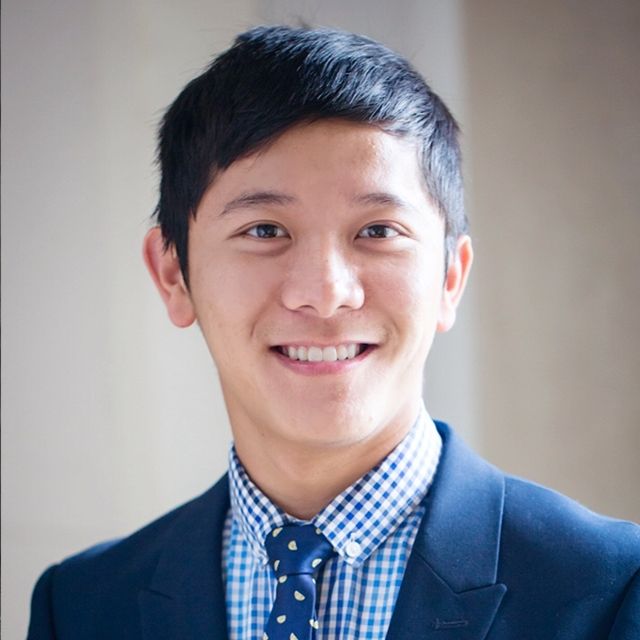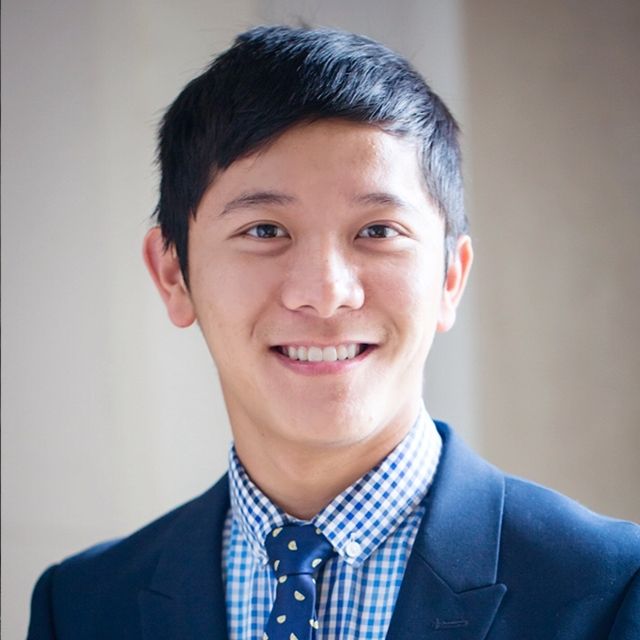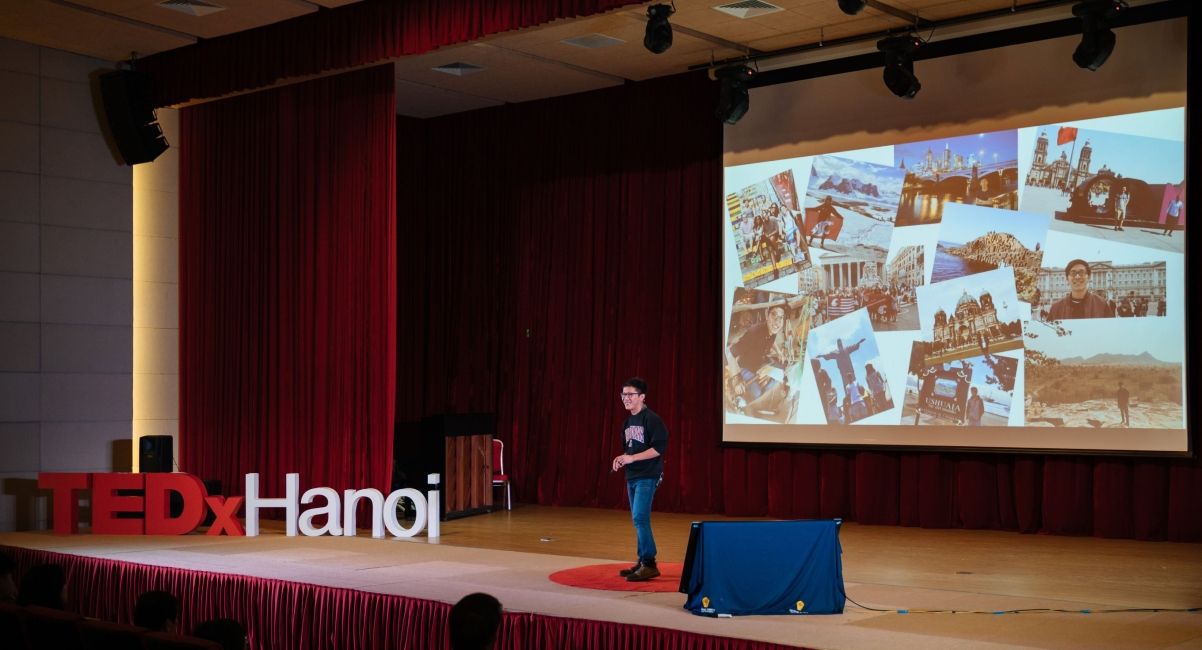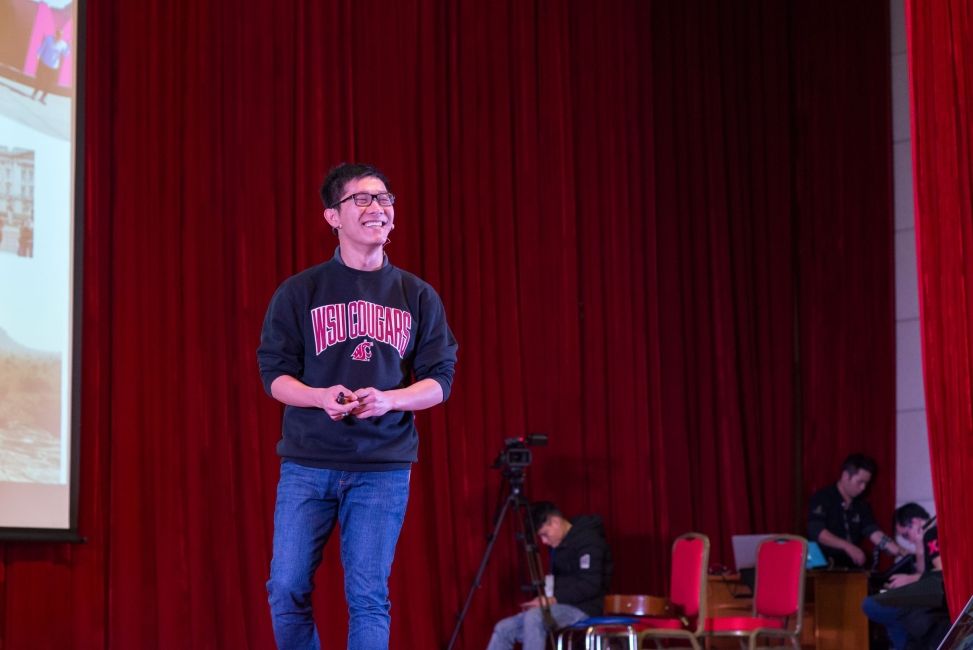Q&A with Nam Nguyen: Traveler of the Seven Continents
Self-proclaimed "study abroad addict" Nam Nguyen has studied abroad on all seven continents . From his childhood in Vietnam to the expert traveler he is now, Nam has had a fascinating journey. In this Q&A he talks about his travels and how studying abroad can inspire people to make the world a better place.

When did you first study abroad?
I started my education abroad journey in the summer of my freshmen year with a program in Ireland. After that program, I completed 11 other different programs, traveling to Italy, Germany, the U.K., Brazil, Australia, South Korea, Argentina, Ghana, Mexico, the Netherlands, and even Antarctica. After all of those programs, I became the first student in the entire 129-year history of Washington State University to have ever studied abroad on all seven continents.
Are you the first to study abroad in your family, or did your family/friends inspire you to have this adventure?
Neither of my parents or siblings has completed high school. I’m the first one in my family to go to college, and of course, also the first one to study abroad. Growing up in a small rural town in Vietnam, my parents and siblings would have loved to go abroad, but couldn’t afford it. Therefore, they inspired me to go abroad for them. I’m not only traveling around the world, but also living their dreams.
Why study abroad so much? Why didn’t you just stop at one program?
I must confess that I am a study abroad addict. I could never stop pursuing more study abroad opportunities. I figured out that I learned a lot when studying in a real-world classroom. I believe that not every classroom has four walls, studying abroad is the way to immerse myself in other cultures and learn from people who are different than me.
What was your favorite place you studied?
In terms of eye-opening, I loved Antarctica. I got the chance to experience and learn more about the last great untouched wilderness and its incredible beauty and its rich history of adventure and exploration. The moment of stepping on Antarctica was unreal and unforgettable.
Other than that, in term of culture, I loved my CIEE program in Brazil. I had an amazing time learning about Brazilian culture, people, and how they do business there. I loved visiting the favelas in Brazil.
Tell us about a memorable intercultural experience.
When I was in Italy, I arrived late at night, and the guide took me directly to the apartment where I would stay. I was so hungry and decided to come out to find a convenience store or a restaurant to get something to eat. I ended up getting lost, as in the center the Rome, you could easily find a shoe or fashion store rather than a convenience store or grocery shop. Could you imagine on the first night arriving there, I got lost with no phone, no address. It was late at night, so there were no people on the street and I didn’t speak Italian. I was freaked out. But when I calmed down, I knew that I couldn’t be too far away from the apartment. I was just lost around the area. I tried to remember my route and realized that there was a Tommy Hilfiger store at the corner where I turned to get to the main street, so I tried to find that store. I finally found that and got home safely. I still didn’t get anything in my stomach that night, but probably after I got lost, I forgot everything about the hungry stomach and just tried to find the way back.
What do you think is the advantage of studying in multiple countries, and not just one?
Experiencing different culture norms was the great advantage of studying abroad in multiple countries. I got the chance to see how similar and different countries and cultures are. I also got the opportunity to make friends and build connections all over the world. The ability to understand different cultures has prepared me to be able to work with people from diverse backgrounds.
What was your experience doing Open Campus? How does this type of program differ from the traditional study abroad program, in your eyes?
I love the CIEE’s Open Campus structure. Doing the Open Campus allowed me to be flexible and creative with my education. I completed three blocks of six weeks each in Rome, Berlin, and London. That was a phenomenal experience!
Taking two classes per block made it less stressful and allowed me to have more time exploring the city and making more friends. This type of program is very different from the traditional study abroad program, since students can select to study in the block that best fits their schedule and don’t have to commit to a full semester.
The variety of courses offered was the highlight of the program. From business to social sciences, language to political science, students have a lot of choices to be creative with their schedule.
How do you think studying abroad impacted/complimented your education? Your career?
Academically, I believe that there is no better way to learn something in a real-world context. I studied German history while visiting the Berlin wall. I also studied contemporary arts while looking at them directly at the museums and the Vatican in Rome. I studied Brazilian finance when I was visiting the Sao Paolo Stock Exchange and got to interview the investors directly. (All of those three programs were with CIEE.) What I learned from those unforgettable experiences is more powerful than what I could have learned just in a textbook.
Through studying abroad, I made a lot of professional connections that could be very beneficial to me in the future. Many employers and recruiters that I had a chance to speak with, said that they prefer to hire a student who possesses international experience than one who doesn’t.
I have a keen passion for the field of international education, and I firmly believe that my rich international experience will help me make it my career. My own experience studying abroad has prepared me to work with students who are also passionate about education abroad.
What do you think the value of studying abroad is to the world?
Education abroad is not only beneficial to students, but also has value for international affairs and humanity as a whole. It builds bridges between cultures and nations. It creates the space for the youth of different cultural background to interact.
I have a friend who studied abroad in Japan. After he visited Hiroshima and witnessed the consequences that the U.S.’s nuclear bomb had for Japan and its people, he decided to come to Japan and work for a non-profit organization as a way to heal the world. I have another friend who studied abroad in India and decided to return to India to teach in rural communities as a way to reduce illiteracy there. Through study abroad, these friends got inspired to do something to make the world a better place to live.
When I look at these stories, I realize that education abroad is more powerful than ever. It opens students’ eyes about the world.




